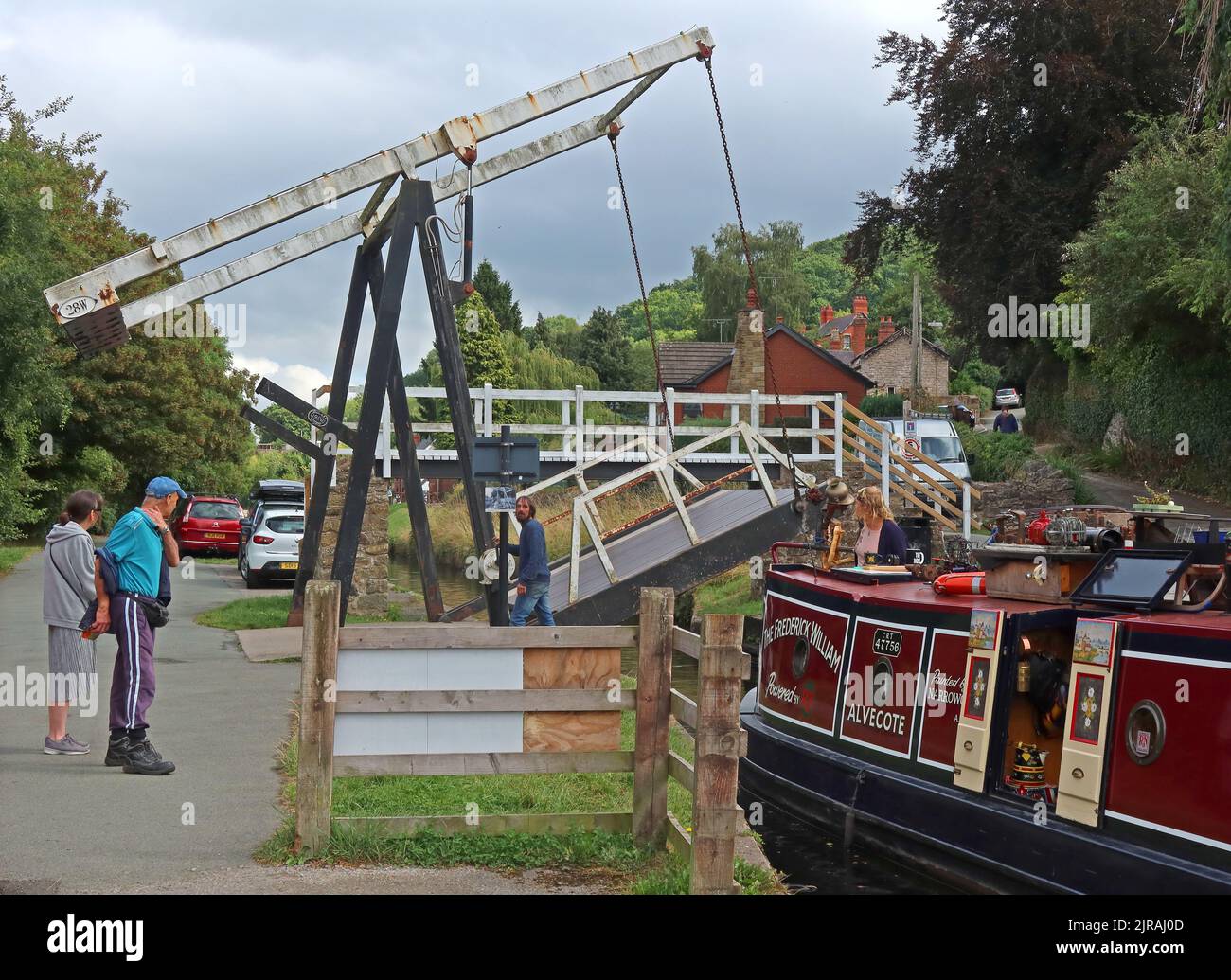The Frederick William CR 47756 traditional barge at open Bascule bridge, Vale of Llangollen, Trevor, Llangollen, Wales, UK, LL20 7TP

Image details
Contributor:
Tony SmithImage ID:
2JRAJ0DFile size:
49.6 MB (2.3 MB Compressed download)Releases:
Model - no | Property - noDo I need a release?Dimensions:
4884 x 3552 px | 41.4 x 30.1 cm | 16.3 x 11.8 inches | 300dpiDate taken:
21 August 2022Location:
Vale of Llangollen, Trevor, Llangollen, Wales, UK, LL20 7TPMore information:
A bascule bridge (also referred to as a drawbridge or a lifting bridge) is a moveable bridge with a counterweight that continuously balances a span, or leaf, throughout its upward swing to provide clearance for boat traffic. It may be single- or double-leafed. The name comes from the French term for balance scale, which employs the same principle. Bascule bridges are the most common type of movable span because they open quickly and require relatively little energy to operate, while providing the possibility for unlimited vertical clearance for marine traffic. There are three types of bascule bridge and the counterweights to the span may be located above or below the bridge deck. The fixed-trunnion (sometimes a "Chicago" bascule) rotates around a large axle that raises the span(s). The Chicago bascule name derives from the location where it is widely used, and is a refinement by Joseph Strauss of the fixed-trunnion. The rolling lift trunnion (sometimes a "Scherzer" rolling lift), raises the span by rolling on a track resembling a rocking-chair base. The "Scherzer" rolling lift is a refinement patented in 1893 by American engineer William Donald Scherzer. The rarer Rall type combines rolling lift with longitudinal motion on trunnions when opening.[4] It was patented (1901) by Theodor Rall. One of the few surviving examples is the Broadway Bridge (1913), in Portland, Oregon